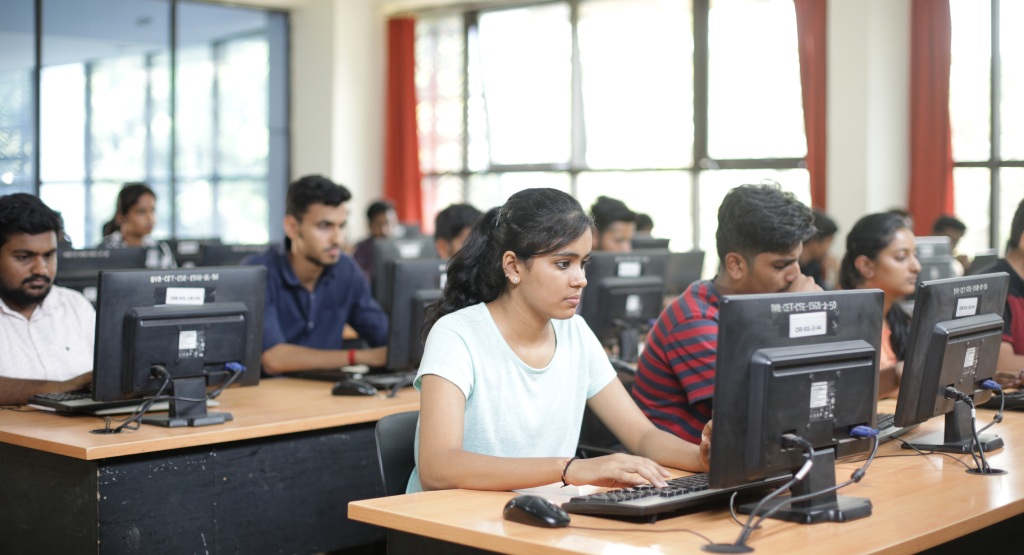Computing has become an integral part of modern life, influencing nearly every aspect of society.
From transportation and defence to entertainment, healthcare, education, communication, and social interaction,
computer science plays a pivotal role in driving positive advancements.
As a discipline, computer science encompasses the study of computational systems, focusing on
the theoretical foundations of computing, the design and development of software systems, and the application of
computational techniques. It empowers individuals and industries to address complex and challenging problems
across diverse domains, including business, industry, science, and social contexts.

The Bachelor of Engineering (BE) in Computer Science and Engineering curriculum is designed to provide a strong
foundation in key areas such as programming languages and methodologies, databases, algorithm analysis, data
structures, and operating systems. This foundation is further built upon with advanced courses in data
structures, data analytics, cloud computing, artificial intelligence, cybersecurity, and software-defined
networks. The program emphasizes experiential and contextual learning, seamlessly integrating theoretical
knowledge with hands-on laboratories and project-based work.
Students have the flexibility to specialize in cutting-edge domains like Cloud Computing, Big Data, Artificial
Intelligence, and Deep Learning. In addition to technical expertise, the curriculum includes interventions to
develop essential soft skills such as communication, teamwork, interpersonal skills, and critical thinking—key
attributes for a successful career.
The pedagogical approach at KLE Technological University positions it among the top
institutions for Computer Science and Engineering in Bangalore, Karnataka. From the first year to graduation,
students undertake numerous projects under the guidance of faculty and industry mentors, tackling real-world
problems and delivering innovative engineering solutions.
To enhance programming proficiency, students are encouraged to engage with global coding
competition platforms, enabling them to compete and grow alongside programmers worldwide. The program also
includes opportunities for internships in industry or research labs, offering valuable practical exposure.
With access to advanced research laboratories equipped with state-of-the-art technology,
students can work on niche projects, exploring emerging fields and technologies. This holistic and immersive
approach ensures that graduates are industry-ready and prepared to make meaningful contributions in the field of
Computer Science and Engineering.